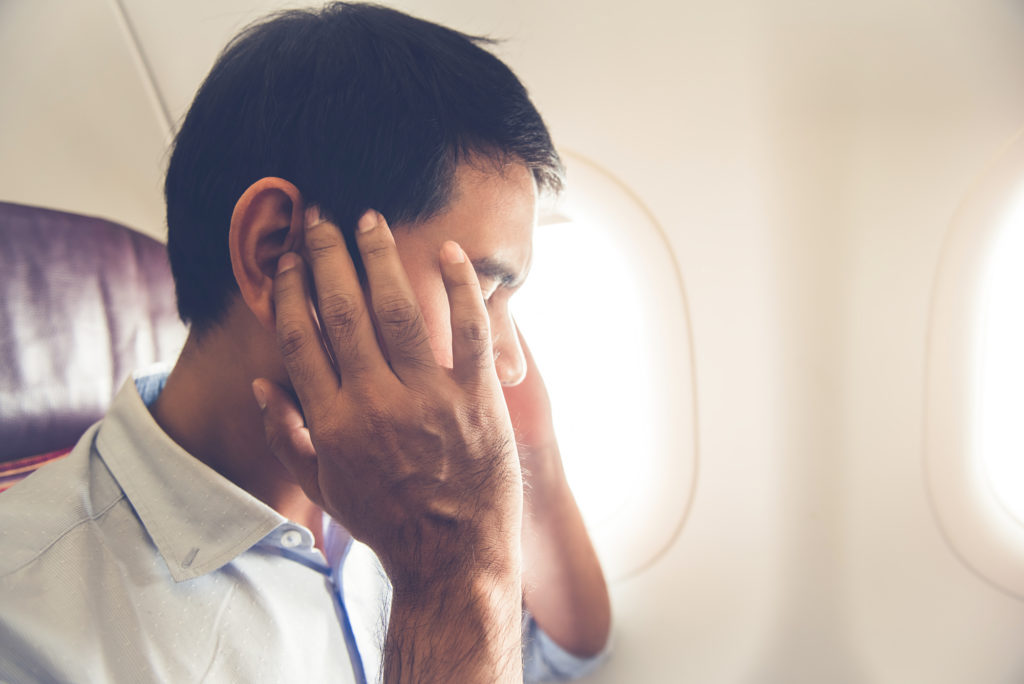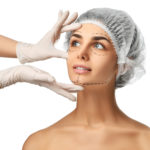
The human body is such a strange thing. Problems in one area can reduce the functions of another. This is especially true with our ears.
For example, did you know problems in your ears can cause vertigo and throw off your balance?
If something is making you say, “My ear feels weird,” we’ll help you find the cause in this article. Just Keep reading!
My Ear Feels Weird: Treatment
There are many causes for discomfort in your ears. Whether one or both feel clogged, your hearing is fading or you’re hearing a constant ringing sound.
If you are experiencing any of these symptoms, there are home remedies and over the counter treatments that can help you out. But they can sometimes be a sign of a more serious illness.
Our guide will help you decide exactly what to do.
1. You’re Aging
Just like your vision, your hearing worsens as you age. The most common type of age-related hearing loss is called presbycusis.
It occurs gradually, beginning with your ability to hear higher pitched sounds. A lot of the time, you will be able to hear someone talking to you, but their voices aren’t clear. Sort of like they’re mumbling.
Forty-three percent of people over the age of 65 have some form of presbycusis.
2. You’ve Got a Wax Problem
Maybe your ears are feeling full because they actually are. Earwax, also known as cerumen provides lubrication to the auditory canal.
It also helps prevent outside elements like hair and dust from lodging too deeply into the canal. However, too much of a good thing can quickly become a bad thing.
When the wax builds up, your hearing can become muffled. You may also have odors coming from that area, itching, aching, or tinnitus (ringing in the ears.)
If you think your fullness is a result of wax buildup, don’t try to resolve it with a cotton swab. Cotton swabs will remove some of the wax, but they’ll mostly push it deeper into the canal.
Baby oil, olive oil, saline solution, or a mix of hydrogen peroxide and water can help clean your ears. Leave either product in for a few minutes and drain it onto a towel.
If this doesn’t help, have a doctor remove it. Consult Eastside ENT Specialists for the best help. You don’t want to damage your sensitive canal and eardrum.
3. It’s an Ear Infection
Common ear infections are swimmer’s ear (otitis externa), middle ear infection (otitis media), and labyrinthitis.
Swimmer’s ear is an infection in the ear canal. If you have it, you can experience itching, discharge, pain, and a feeling of fullness.
It can be caused by incorrectly cleaning your ears. This results in less than normal healthy earwax or trauma.
This is usually resolved with a professional cleaning and medication. Your prescription can include antibiotics or anti-fungal meds.
Middle ear infections are inflammation in the middle of your ear. Anyone can have this infection, but it’s mostly found in babies and young kids.
A fever and intense pain are symptoms. Middle ear infections are cured with antibiotics and treated with over the counter pain medications. Although, it can sometimes heal on its own.
Symptoms of labyrinthitis are vertigo, nausea, tinnitus, and hearing loss. It affects people of all ages, but some factors make this infection more likely to occur.
If you:
- Have had a recent respiratory illness
- Have herpes
- Smoke
- Drink large amounts of alcohol at a time
- Have allergies
- Are extremely stressed
- Take aspirin
- Have a bacterial infection (including middle ear infection)
You are more likely to contract labyrinthitis.
If you have symptoms of labyrinthitis, contact your doctor right away. Determining the cause will help the treatment plan.
Prescription antihistamines, sedatives, and corticosteroids are just a few of the methods your doctor may suggest for relieving your symptoms.
4. It’s Secondary Endolymphatic Hydrops (SEH)
SEH is a vestibular disorder. It can occur if you recently had a head injury, illness, or ear surgery.
During treatment, your doctor will stabilize your electrolyte levels and fluid, treat the cause (underlying condition) and work to improve the day to day symptoms.
Including giving you a healthy weight plan and improving your general health.
5. Maybe You Have Cumulative Hearing Damage
Because of the advancements in headphones and speaker systems, it’s becoming more common to see teenagers and young adults with cumulative hearing damage.
Going to a concert here and there won’t cause harm. The problems come from constant exposure to extremely loud noise.
If you’re wearing earbuds and can’t hear someone next to you speak, the volume is too high. This can sometimes heal itself, but it can require surgery too.
6. Pressure in the Eardrum
It’s normal to have popping in your ear when you’re on an airplane. This is to do the changes in the air pressure.
However, if you feel the same popping or pressure that hurts without those changes, it’s a cause for concern. This can possibly be caused by nasal congestion, swelling in your throat, or ear.
The swelling can prevent your eardrums from properly adjusting to the air around you. If your condition worsens, you can have nosebleeds, hearing loss, and pain.
Surgery is rarely required to resolve this. Decongestants, steroids, or even chewing gum can help.
7. You Could be Diabetic
People with diabetes are twice as likely to develop hearing loss than those without it. While doctors aren’t sure of the exact cause, they think diabetes damages the blood vessels that are located inside the ear.
If you have diabetes, you should take extra precautions to protect your hearing. Eat healthy, exercise, and make sure you get enough sleep to help offset or even reverse symptoms.
8. Or Have Sudden Sensorineural Hearing Loss
Sudden sensorineural hearing loss (SSHL) is rare. It presents itself relatively quickly (in minutes or days) and should be treated as a medical emergency.
People with SSHL experience sudden deafness followed by a pop. They then feel fullness in their ears, dizziness, and tinnitus.
There are over 100 causes of SSHL including measles, mumps, damage to the head, or an extremely loud sound like an explosion. Younger patients are more likely to fully recover, however, the results vary significantly from case to case.
9. Maybe It’s Your Medication
There are more than 200 medications that can result in hearing loss, ringing in the ears or balance disorders. They fall into a drug category called ototoxic.
The majority of these drugs treat serious illnesses like cancer. But if you’re someone who takes high doses of aspirin, naproxen, or ibuprofen, you can experience tinnitus or hearing loss.
10. Otosclerosis
Over 3 million people in the United States live with, otosclerosis, a hardening of the ones in the ear. Most of them are middle-aged women.
Our bones renovate themselves constantly. But when something goes wrong, the bones in your ear can become too stiff.
This stiffness can cause problems in the way your ears conduct sound. Hearing ringing, roaring, buzzing, and hissing sounds are symptoms.
This usually begins in one ear and ends up moving into the other.
Follow Us
If you liked reading My Ear Feels Weird, you’ll love the rest of our site. Follow us for all the latest news stories, random facts, trivia, and celebrity info.

